Sweet, savory, and full of flavor, this delicious Homemade Eel Sauce recipe is the dream sauce for Japanese broiled eel fillets, grilled rice balls, and barbecue dishes. You only need four ingredients!
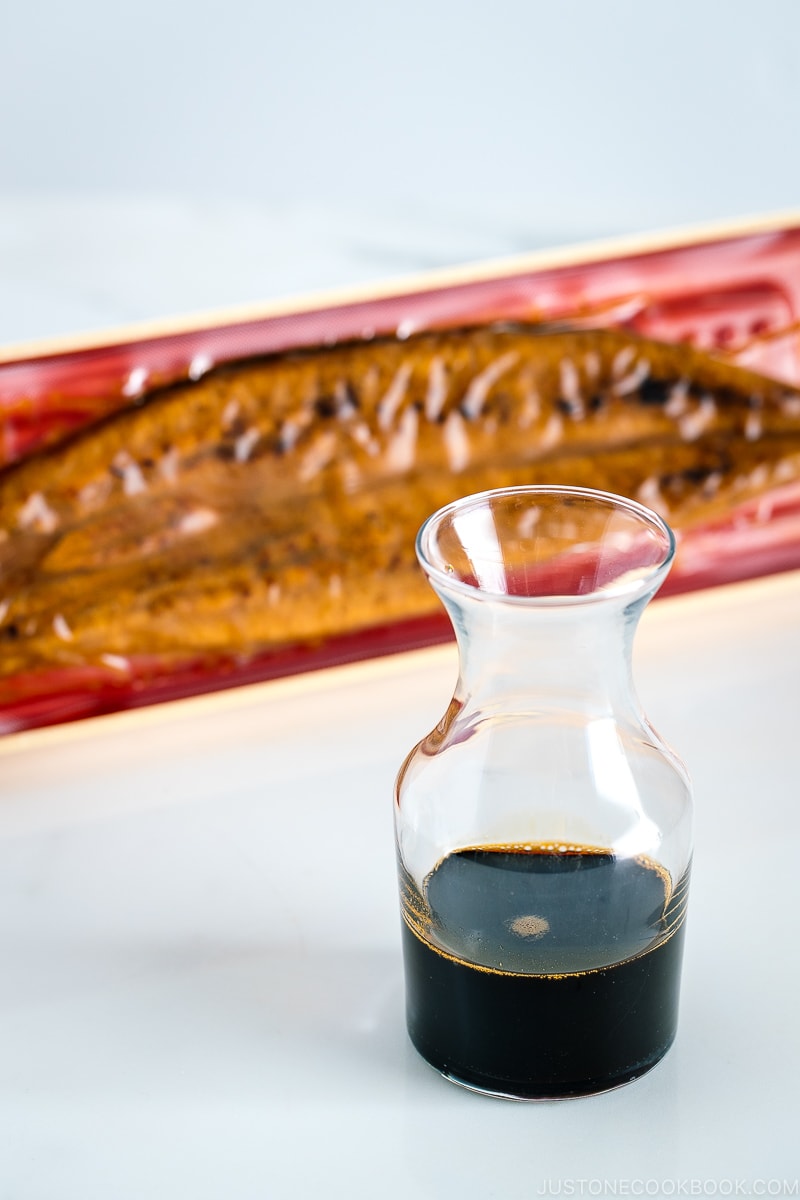
Eel sauce or unagi no tare (うなぎのたれ) is a thick and sweetened soy sauce used to glaze broiled eel or recipes that feature unagi. While you can easily buy it at the market or online, it’s incredibly easy and tasty to make at home!
My Japanese Homemade Eel Sauce recipe uses just four ingredients and takes only 20 minutes to make. It keeps for 2–3 months in the refrigerator, so you can make a batch and use it for your favorite dishes. Let me show you how it’s done!
Table of Contents
What is Eel Sauce?
What is that caramelized brown sauce with a syrup-like consistency that goes with grilled unagi in your unagi don or unagi sushi? Well, this irresistible glossy sauce is eel sauce or unagi sauce.
This savory-sweet sauce is made with basic Japanese pantry ingredients (it doesn’t use eel as an ingredient). The best eel sauce is the homemade version, hands down! Compare it to commercial sauce brands that you can buy in the market or on Amazon and you’ll notice a difference.
Eel Sauce vs. Teriyaki Sauce
Unagi sauce and teriyaki sauce use different proportions of the same ingredients—sake, soy sauce, mirin, and sugar. You might think these sauces are the same, but you’ll notice slight differences in the richness and sweetness.
Try my homemade recipe on the blog if you want to make authentic Japanese teriyaki sauce the way we make it in Japan!
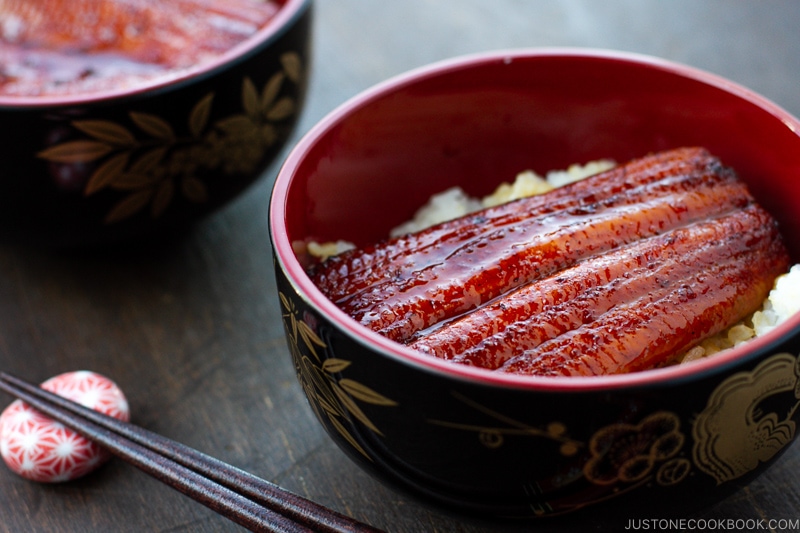
Ingredients for Homemade Eel Sauce
You only need four simple ingredients from the Japanese pantry to create a rich, umami-packed sauce:
- sake (Japanese rice wine) – adds umami flavor; the alcohol burns off during cooking, so it’s suitable for all ages
- mirin (sweet rice wine) – for a mild sweetness and luster
- soy sauce – use Japanese soy sauce for an authentic flavor; use gluten-free soy sauce or tamari for GF
- sugar – sweetens and thickens the sauce so it’s easy to pour
Note: Authentic unagi sauce does not use rice vinegar, which has an acidic tang that takes away from the sauce’s integrity. While you might be tempted to make other variations using substitutes, don’t add cornstarch, garlic, and ginger. Those flavors will overwhelm the delicate unagi.
Jump to RecipeHow To Make Eel Sauce
Making homemade unagi sauce is so simple. Plus, you get to adjust the balance of sweet and salty to suit your taste when making it yourself. There are no additives or preservatives, either. The instructions couldn’t be more simple:
- Combine the mixture in a small saucepan and stir to dissolve the sugar.
- Simmer on medium heat until the sauce caramelizes and thickens to your desired richness.
Store the leftovers in an airtight container or jar in the fridge (or freezer) for 2–3 months.
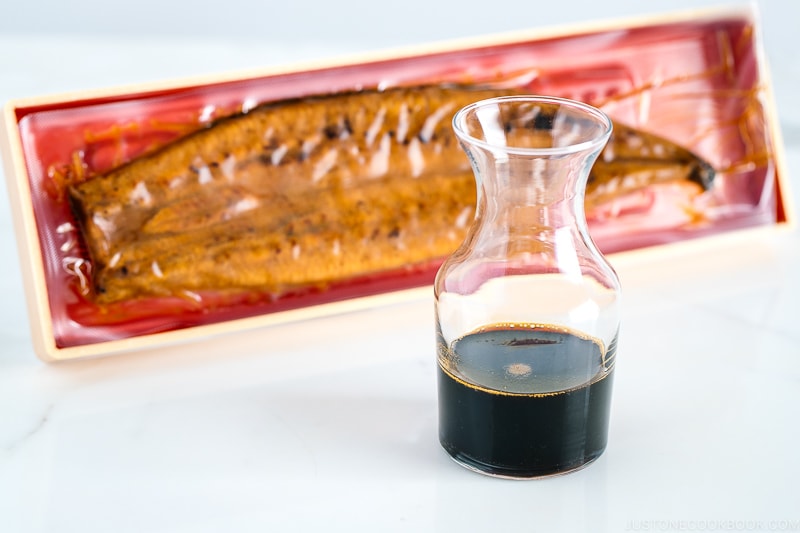
How To Use Eel Sauce
Aside from unagi dishes, unagi sauce is finger-licking delicious on BBQ. Think grilled fish, pan-fried chicken, tofu, mushrooms, and onigiri rice balls. All you need is a light brush or a drizzle of this sweet-savory sauce to heighten the flavor.
In addition, you can use it as a marinade for meats or as a dressing for noodles.
Recipes for Unagi Sauce You’ll Love
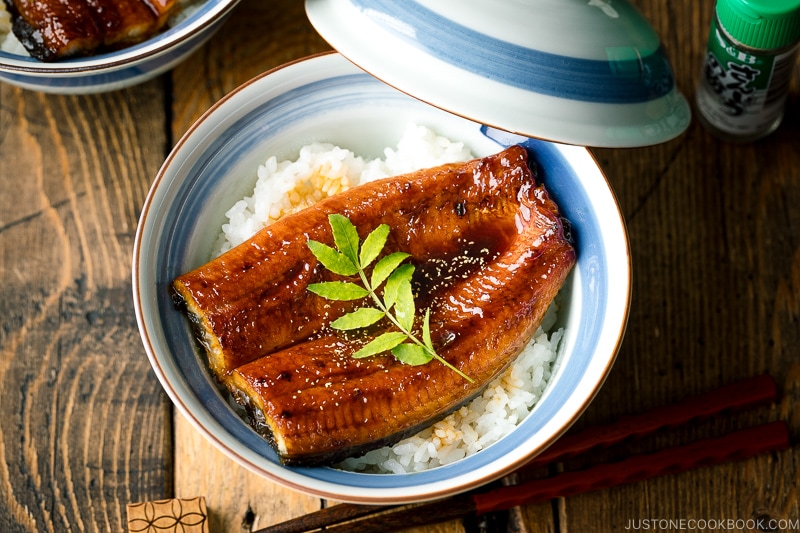
Unadon (Grilled Eel Rice Bowl)
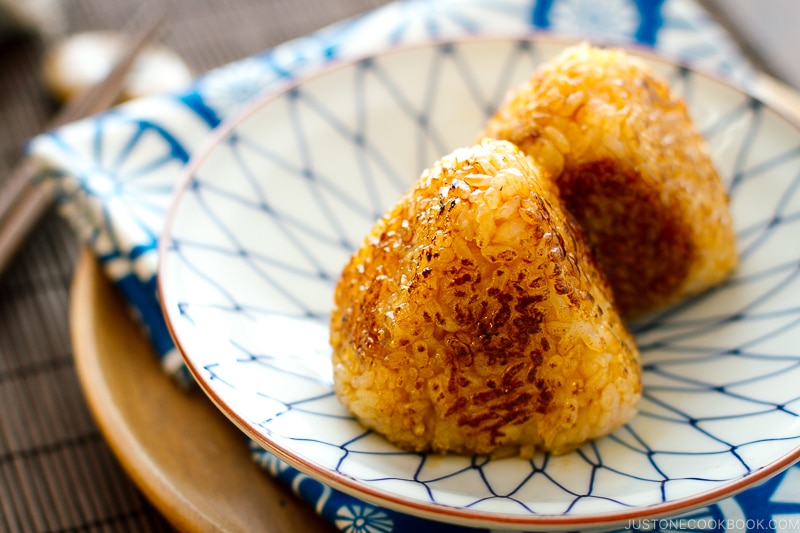
Yaki Onigiri (Grilled Rice Balls)

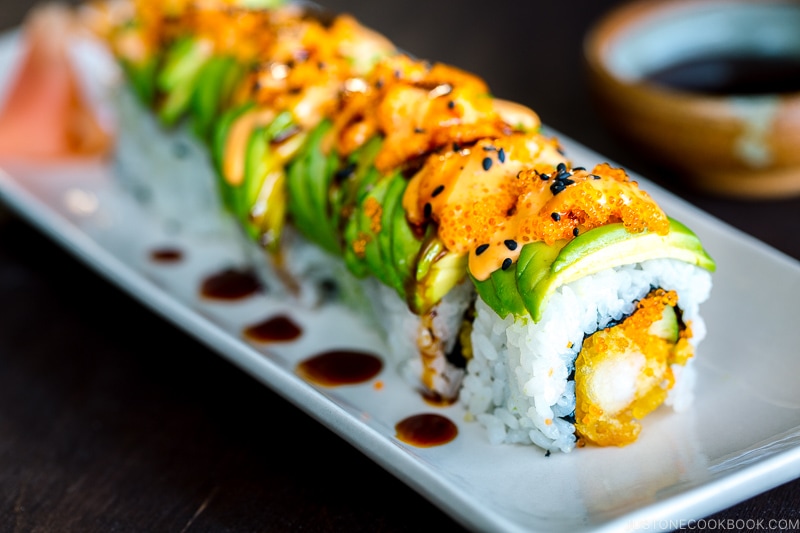
More Recipes for Authentic Japanese Sauces
- Teriyaki Sauce – the way we make it in Japan!
- Tonkatsu Sauce
- Ponzu Sauce
- Okonomiyaki Sauce
- Japanese Kewpie Mayonnaise
Wish to learn more about Japanese cooking? Sign up for our free newsletter to receive cooking tips & recipe updates! And stay in touch with me on Facebook, Pinterest, YouTube, and Instagram.
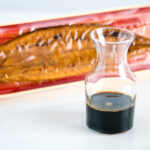
Homemade Eel Sauce (Unagi Sauce)
Instructions
- Gather all the ingredients. To make a larger batch of Unagi Sauce, see Notes below for the ingredients list.
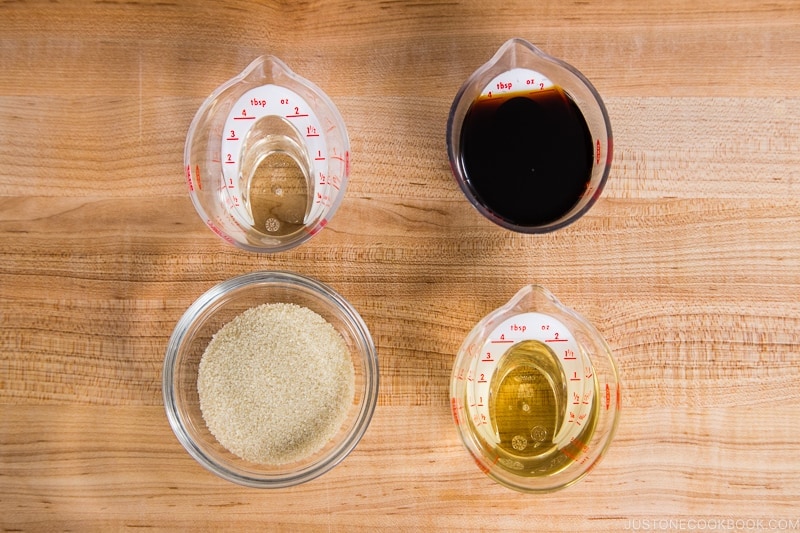
- In a small saucepan, add ¼ cup mirin, 1½ Tbsp sake, and 2½ Tbsp sugar. Turn on the heat to medium and whisk all the ingredients together.

- Then, add ¼ cup soy sauce and bring it to a boil. Once boiling, reduce the heat to low and continue simmering for 10 minutes. Toward the end of cooking, you will see more bubbles.

- Turn off the heat and let it cool. The sauce will thicken as it cools. It‘s now ready to use.
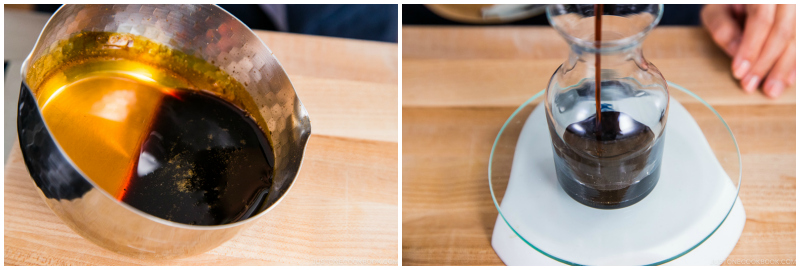
To Use
- Use this Homemade Eel Sauce when you broil or grill freshwater eel fillets in recipes like Unadon (Grilled Eel Rice Bowl), Eggplant Unagi Donburi, and Unagi Chazuke. You can also use this versatile sauce to make Yaki Onigiri (Grilled Rice Ball) and Dragon Rolls.
To Store
- You can store the sauce in an airtight jar and keep in the refrigerator for up to 2–3 months.
Notes
For the full amount Unagi Sauce (extra will keep for 3 months)
- ¾ cup (180 ml) soy sauce
- ¾ cup (180 ml) mirin
- ½ cup (100 g) sugar
- ¼ cup (60 ml) sake
Nutrition
Editor’s Note: The post is originally published on May 6, 2013. The new images have been added to the post in May 2019.
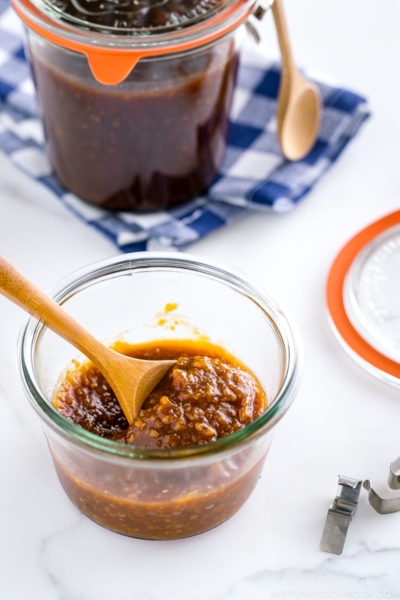
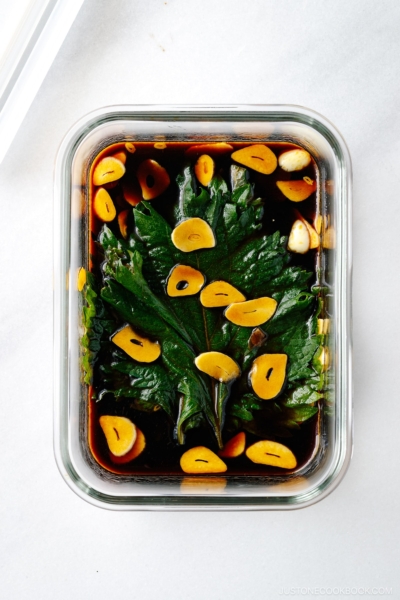
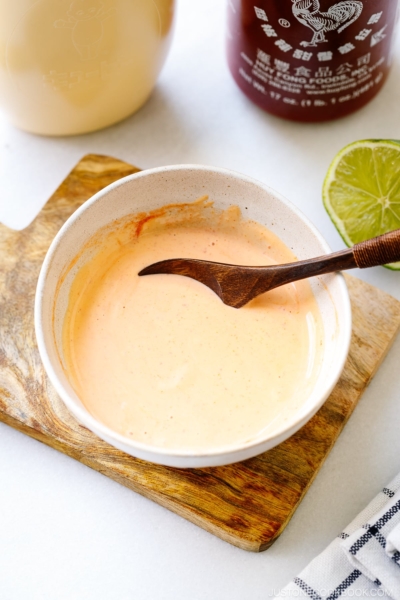
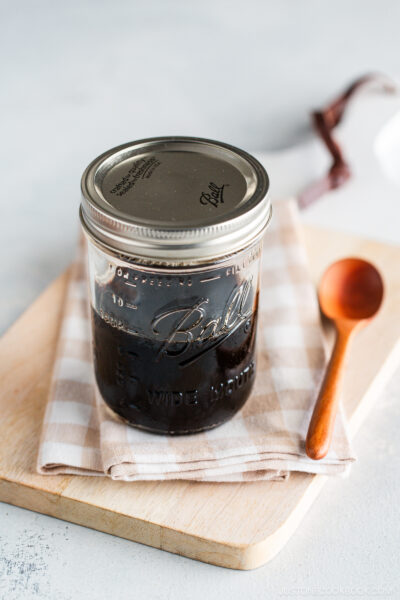
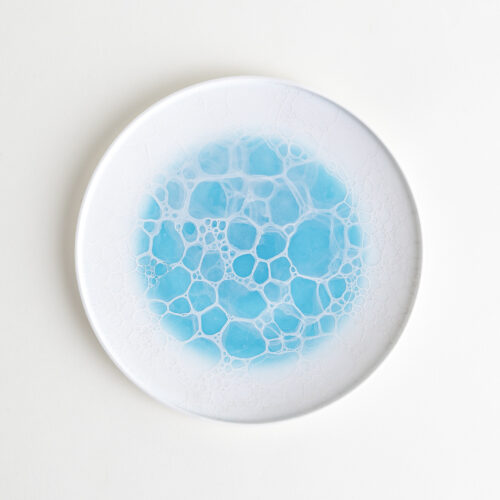
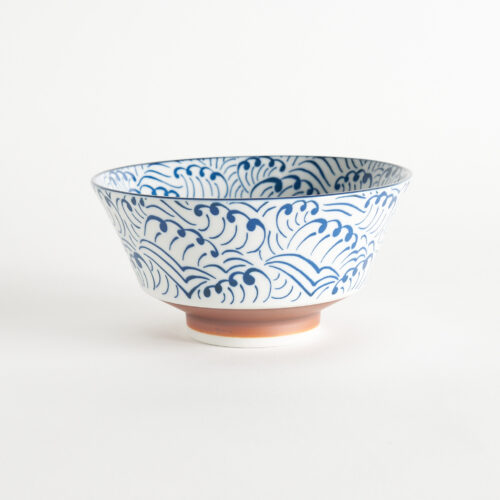
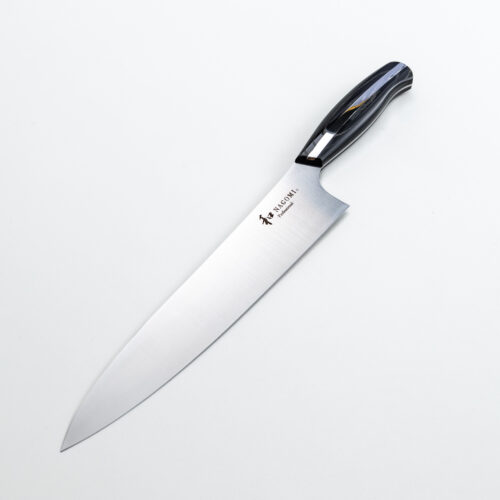
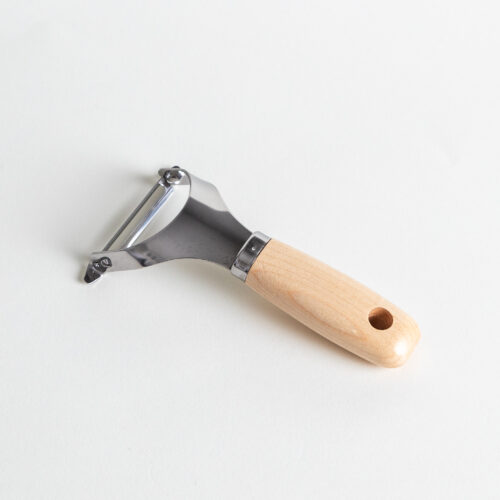
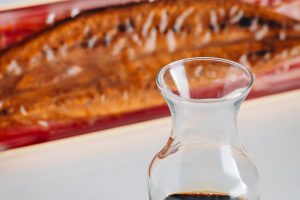
Love this! It was soooo good!!! A bit scared thinking the soy sauce would come out too salty. But nope, just perfect! Thank you 😊
Hi SHIRLY, Thank you for trying Nami’s recipe and for your kind feedback!
We are so happy to hear you enjoyed Nami’s recipe.🥰
Is there a preference for the type of sugar used for this recipe?
Hi Andrea! Thank you so much for trying Nami’s recipe!
Nami uses organic cane sugar (natural blond/tanned color sugar; She gets one from Trader Joe’s), but other sugar would work.
We hope this helps!
Just wish to say your yaki onigiri and unagi sauce recipe maintain Japanese umami flavours. It never ceases to surprise me when gaijin san substitute ingredients and say it is the same. As a gaijin too
it is apparent some readers must not have ‘ lived Japan’ to appreciate the subtleties of its food and umami delights. Your site is perfect Nami san.
Hello there, Daivd! Thank you for reading Nami’s post and for your kind words.
We appreciate your love and support. Happy cooking!☺️
Spot on 🙂
This is basically Teriyaki sauce, There is no eel or fish base in the sauce. I bacally used this recipe but added fish sauce and adjusted the sugar to taste and I used agave nectar instead of sugar. Keep in mind that there is sugar in Mirin and you want a sugar salt balance
Hi William, Thank you for your feedback. Yes. There is no eel in the sauce and uses it for many dishes.
We hope you have a chance to read this recipe post. Nami explains what Eel Sauce is.🙂
As for sweetness, Mirin is our traditional ingredient, and it offers a delicate sweetness and a nice aroma to many Japanese dishes. So most Japanese recipes use Mirin and Sugar to balance the flavor and taste.
Here is a post about Mirin: https://www.justonecookbook.com/mirin/.
We hope this helps!
Lol! Talk about clueless and saying something without knowing… In asian cuisine, just because a sauce contains a certain word, in this case “eel”, it doesn’t mean it’s an ingredient necessarily but instead sometimes meant for a certain dish. And the ratios are different from teriyaki, and usually the end result consistency should be also, the unagi sauce being more thick and slightly sweeter. When you add this and that to a recipe, don’t call it so. Your version might be an excellent twist, but it’s definitely not unagi sauce. And as for mirin, sure the commercial junk is overly sweet and not at all representative of Hon Mirin which is slightly sweet with 14% alcohol and loaded with amino acids which give you that “umami” and sheen.
Un poco de amabilidad y respeto en los comentarios no viene nada mal.
Ohhh myyyy god… it’s so gooood. Perfect bliss point between salty and sweetness. The taste was so addictive, couldn’t stop eating the sauce on its own haha. Thank you very much for sharing such a great yet simple recipe. It tastes even better than the one from restaurants.
Forgot to mention, I marinaded the sauce and cooked it with salmon. It made my salmon taste so divine.. ❤️😋 just have to find the way to make the skin stays crispy. Any tips? 😊
Hi Aoh! Thank you very much for trying Nami’s recipe and your kind feedback!
We are glad to hear you enjoyed homemade Unagi Sauce!
To make the skin crispy, brush the sauce and put it in the oven for a few minutes, or use a broiler and cook the skin sides until it gets crispy. You can also use Cooking Torch.
https://www.justonecookbook.com/unagi-don-unadon/
We hope this helps!
Great recipe and very simple! Do not make the same mistake as me and attempt to microwave this instead of boiling. I made a mess in the microwave lol
Hi Sushilover! Thank you for reading Nami’s post and trying her recipe!
We hope you try Nami’s Unagi recipes next time! 🤗
https://www.justonecookbook.com/unagi-don-unadon/
https://www.justonecookbook.com/unagi-chazuke/
https://www.justonecookbook.com/eggplant-unagi-donburi/